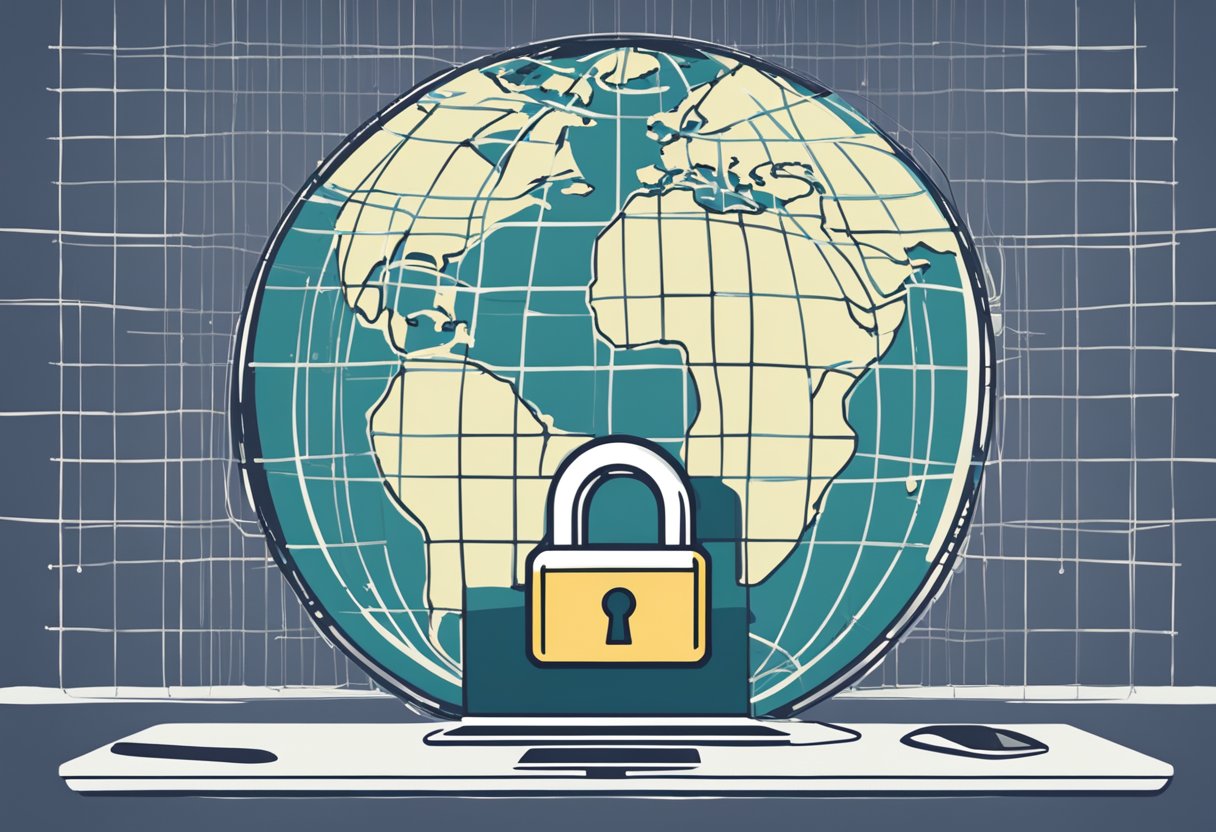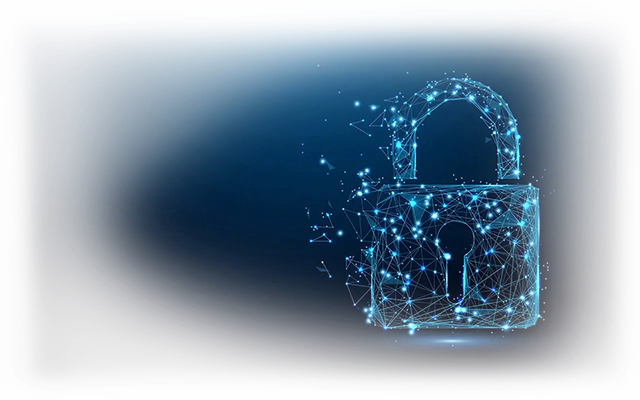
Why Proxies and VPNs are Important for Online Privacy and Security
Proxies and VPNs serve as essential tools for internet privacy and security. With the increasing amount of personal and professional activities conducted online, the importance of maintaining confidentiality and safeguarding data has never been greater. They act as intermediaries that offer anonymity, help in bypassing geo-restrictions, and protect against cyber threats, making them invaluable for both individual users and businesses.

Proxies provide a way to mask a user's original IP address, allowing for increased anonymity while browsing the web. They redirect internet traffic through a different server, often disguising the user's location and internet identity. This can be particularly advantageous for accessing content that is restricted in certain regions or for protecting personal information from being collected by websites and advertisers.
Virtual Private Networks (VPNs), on the other hand, not only mask IP addresses but also encrypt the entire data transmission between the user's device and the internet. This encryption ensures that sensitive information, such as passwords and credit card numbers, is secure from interception by hackers. VPNs are widely recommended for use on public Wi-Fi networks, where the likelihood of cyberattacks is notably higher. They play a critical role in creating a safe and private environment for internet users, as the repercussions of digital vulnerabilities are significant in this interconnected age.
Fundamentals of Online Privacy and Security
Online privacy and security hinge on the ability to control one's personal data and protect it from unauthorized access. Two main tools that enhance these capabilities are Proxies and Virtual Private Networks (VPNs).
What Are Proxies
Proxies act as intermediaries between a user's device and the internet. When connecting through a proxy server, internet requests are rerouted. This means the user's real IP address is replaced by the proxy's IP address, thus masking the user's original identity and location.
- Regular Proxy: Manages basic functions without encryption.
- Transparent Proxy: Forwards user information and does not conceal identity.
- Anonymous Proxy: Hides the user's information to ensure anonymity.
Proxies serve various purposes:
- Enhancing privacy: By hiding the user's actual IP address.
- Accessing geo-blocked content: Utilizing an IP from a different location can bypass geo-restrictions.
- Filtering content: Proxies can prevent access to certain websites, often used in organizational contexts.
What Are VPNs
Virtual Private Networks (VPNs) are powerful tools for online privacy and security. A VPN encrypts all data traffic between the user's device and the VPN server. This creates a private tunnel through the public internet, shielding the user's activities and data from external observation.
Essential Features of VPNs:
- Encryption: Strong encryption standards like AES-256 help to ensure data is unreadable if intercepted.
- IP Masking: Replaces the user's IP address with one from the VPN provider.
- No Logs Policy: Indicates the VPN provider does not keep records of user activities.
VPNs are used to:
- Secure connections on public Wi-Fi: Preventing hackers from snooping on personal data.
- Maintain internet freedom: Users can avoid censorship by connecting to servers in different countries.
- Safeguard sensitive information: Essential for business communications and protecting personal data from thieves.
Why Privacy Matters
Privacy is essential in safeguarding individuals' personal data and maintaining their autonomy in the digital world. It plays a critical role in preventing unauthorized access and misuse of personal information.
Protecting Personal Information
Personal Information: It includes data such as names, addresses, and birthdates.
-
Sensitivity: Personal information can range from publicly shareable data to sensitive details that, if exposed, could lead to privacy invasion.
-
Control: Individuals need control over who accesses their personal information to maintain privacy and personal security.
Proxies and VPNs:
- Anonymity: They help individuals maintain anonymity online, rendering their personal data less accessible to tracking and profiling.
- Encryption: They provide encryption, securing data transfers and protecting sensitive information from interception.
Preventing Identity Theft
Identity Theft Risks: Criminals may exploit personal details to impersonate individuals, causing financial harm and damage to one's reputation.
- Prevention Measures: Utilizing a VPN or proxy can dramatically reduce this risk by concealing personal IP addresses and browsing habits.
Data Safety:
- Security Protocols: VPNs use robust security protocols to shield users' identities, lessening the likelihood of identity theft.
- Monitoring: Through encryption and IP masking, these tools monitor and block unauthorized attempts to access personal data.
By using proxies and VPNs, individuals add significant barriers to their digital presence---barriers that protect personal privacy and reduce the risk of identity theft.
How Proxies and VPNs Enhance Security
Proxies and VPNs are critical tools for bolstering cybersecurity. They shield users through advanced encryption protocols and by hiding their IP addresses, ensuring data remains private and altering how one's digital presence is perceived.
Encryption Technologies
- Encryption: VPNs employ robust encryption algorithms, such as AES-256, to scramble data. This makes it incomprehensible to unauthorized parties who might intercept it.
- Protocols: Various security protocols are in place, like OpenVPN and IKEv2/IPsec, each providing different levels of security to cater to user needs.
IP Address Masking
- Anonymity: By replacing a user's IP address with one from the proxy or VPN server, one's actual location and internet activities remain anonymous.
- Access Controls: This also allows users to bypass geo-restrictions and access content restricted in their home region.
Secure Data Transmission
- Wi-Fi Security: VPNs secure connections on public networks, preventing data theft or snooping.
- Data Integrity: They protect against man-in-the-middle attacks and ensure that data reaches its destination untampered.
Bypassing Geo-Restrictions and Censorship
Proxies and VPNs serve as crucial tools for individuals who wish to access services and information not available in their region due to geo-restrictions or government censorship.
Accessing Region-Locked Content
Region-locked content refers to digital media that is made available only to users in specific geographical locations. For instance, streaming services like Netflix or Hulu often have distinct libraries for different countries.
- Proxies: Users can connect to a server in a country where the content is available, effectively changing their IP address to that location.
- VPNs: With a VPN, individuals can not only change their IP address but also encrypt their connection, providing a secure way to access desired content.
Circumventing Government Censorship
Government censorship can block access to certain information or platforms on the internet, ranging from social media websites to news outlets.
- VPNs: By routing traffic through servers located outside the censored area, VPNs help users access restricted sites and services securely and anonymously.
| Tool | Use |
|---|---|
| VPN | Bypass government firewalls |
| Proxy | Temporary access to blocked sites |
- Proxies: These act as intermediaries, allowing users to bypass local network restrictions temporarily, although they often provide less security than VPNs.
Safe Browsing and Anonymity
Proxies and VPNs serve as pivotal tools for enhancing online security and maintaining user anonymity. They are essential for users who prioritize keeping their browsing habits and personal information private.
Anonymous Web Surfing
When a user connects to the internet through a proxy or VPN, their IP address is replaced with one from the proxy or VPN server, effectively masking their actual location and identity. This substitution enables users to browse the web anonymously, making it significantly more challenging for websites to track their real IP address and geographic location.
- Proxies work by redirecting user's internet traffic through an intermediary server.
- VPNs encrypt data transfer, making it difficult for third parties to snoop on the connection.
Avoid Tracking and Profiling
The use of proxies and VPNs disrupts the ability of companies and websites to create detailed profiles based on user activity.
- Cookies and Trackers: Normally, websites use these to monitor user behavior, but a proxy or VPN can prevent accurate tracking.
- Data Privacy: By encrypting traffic, VPNs reduce the risk of personal data being intercepted.
| Feature | Proxy | VPN |
|---|---|---|
| IP Masking | Yes | Yes |
| Data Encryption | No | Yes |
| Reduces Tracking | Partial | Yes |
| Reduces Profiling | Partial | Yes |
Users leverage these tools to significantly limit the digital footprint they leave behind, crafting a more private and secure browsing experience.
Selecting the Right Tool
The correct choice between a proxy and a VPN depends on a user's specific needs for privacy, security, and online activity management.
Proxy vs. VPN: Use Cases
A proxy serves as an intermediary between a user's device and the internet, hiding the user's IP address and providing anonymity for tasks like bypassing geo-restrictions on content. However, it often lacks encryption, making it less secure than a VPN.
VPNs (Virtual Private Networks), in contrast, encrypt data transfer, protecting the user's information from interception. This makes VPNs suitable for sensitive activities such as online banking or confidential communications.
Use Cases for Proxies:
- Bypassing geo-blocks for streaming
- Light anonymous web browsing
- Quick access to regional content
Use Cases for VPNs:
- Secure browsing on public Wi-Fi
- Protecting sensitive transactions
- Masking internet activity from ISPs
Considerations When Choosing a Service
When selecting either a proxy or a VPN service, the user should prioritize the following factors:
-
Security Foundations
- Proxy: Look at the proxy type (HTTP, HTTPS, SOCKS).
- VPN: Evaluate encryption standards (AES-256, OpenVPN, WireGuard).
-
Speed and Performance
- Proxies might offer faster speeds but at the cost of security.
- VPNs, due to encryption overhead, can be slower but more secure.
-
Privacy Policies
- Thoroughly review logging policies to ensure privacy.
-
Reliability and Uptime
- Services should have a proven track record of high availability.
-
Customer Support
- Ensure that there is accessible and helpful support.
-
Price
- Determine your budget and evaluate if the service offers value for money.
The decision should be informed by matching the specific feature offerings of the service with the user's requirements.
Challenges and Considerations
When utilizing proxies and VPNs, users should be aware of potential legal and ethical issues and understand the inherent limitations of these technologies.
Potential Legal and Ethical Issues
-
Legal Boundaries: Users must respect the laws governing their jurisdiction. Proxies and VPNs can be used for legitimate privacy reasons; however, they should not be used to engage in illegal activities such as accessing content unlawfully or participating in malicious behaviors.
-
Ethical Considerations: It is crucial for users to distinguish between privacy protection and unethical anonymity. Misusing VPNs or proxies to commit acts that are considered unethical or to bypass organizational policies can have serious repercussions.
Limitations of Proxies and VPNs
- Security Features: Not all proxies and VPNs provide the same level of security. For example, some proxies---especially free ones---may not encrypt user data, leaving it vulnerable to interception or collect your private data such as passwords
| Feature | Proxies | VPNs |
|---|---|---|
| Encryption | Rarely | Often |
| Anonymity | Medium | High |
| Data Protection | Low | High |
-
Performance Impact: A VPN may slow down internet speeds due to encryption overhead and server distance. Users should anticipate varying performance levels and possibly opt for paid VPN services for better bandwidth and speed.
- Internet Speed: Can be affected by a VPN's encryption processes and server load.
- Server Distance: Affects latency and throughput, influencing browsing and download speeds.
Frequently Asked Questions
Proxies and VPNs serve as tools for enhancing online privacy and security. They are important for users seeking to protect their personal information and maintain internet freedom.
How do proxies enhance security and privacy?
Proxies serve as intermediaries between a user's device and the internet, masking the user's IP address. This obscures the user's location and browsing habits, thereby bolstering their privacy and deterring potential cyber threats.
What are the key differences between a proxy and a VPN?
The primary difference is that a VPN encrypts all internet traffic, providing a secure tunnel for data transmission, while a proxy does not encrypt traffic and often only works on the application level. VPNs typically offer more comprehensive security than proxies.
Why are VPNs crucial for safeguarding online activities?
VPNs encrypt data, which prevents third parties from intercepting and reading sensitive information. They are crucial for preventing data leaks, especially when using public Wi-Fi networks, and ensure confidentiality and integrity of data.
In what ways can proxies and VPNs impact gaming experiences?
Proxies and VPNs can potentially reduce latency and bypass geo-restrictions allowing gamers access to games earlier or to servers in different regions. However, they can also increase response time due to data routing through an intermediary server.
What are the considerations when using both VPN and proxy services together?
Using both services together can provide an added layer of security, but it can also significantly slow down internet speeds and complicate the setup. Users should consider their need for security versus performance when combining these services.

Buy Proxy, SOCKS5 & ShadowSocks Now
Buy Proxy now HTTP Proxies or SOCKS5, Dedicated or Shared, Residential or Datacenter. Fully Anonymous and Premium.
Buy Proxy

What Can We Offer You?
We offer a unique proxy infrastructure, monitored 24/7 with a 99% uptime. In the rare event of a failure, we take immediate action to resolve the issue.
Fast HTTP Proxies and SOCKS5
Our proxy servers are optimized for performance, powered by a 1Gb/s network. Whether you use our residential or datacenter proxies, you'll experience seamless performance.
Proxies with Unlimited Bandwidth
Our Dedicated, Shared, Residential Proxy, SOCKS5, Shadowsocks, and VPNs offer unlimited bandwidth, allowing you to use them as much as you need without any concerns.
Instant Activation Proxies: Plug & Play
Purchase proxies with Instant Activation using a Card or PayPal. Transactions with cryptocurrencies require network confirmations.
Multiple Payment Methods: From Card to Crypto
Buy proxies with Card, PayPal, Bitcoin (BTC), Bitcoin Cash (BCH), Ethereum (ETH), Litecoin (LTC), Ripple (XRP), Solana (SOL), Dogecoin (DOGE), Zcash, Lisk, Dash, and TRON.
Choose Your Proxy by Country, State, or City
Select proxies by city, state, or country. Our static IP proxies, VPNs, residential or datacenter, can be filtered by your desired location. Residential proxies can also be filtered by ISP.
Dual Authentication
Opt for username and password authentication, or authenticate by adding your IP address to our system. Access your proxy password or add your IP in your account.
Monthly IP Address Refresh
We offer monthly proxies, both residential and datacenter. For long-term purchases, we provide the option to change proxies directly in your account.
Proxies Focused on Top Privacy & Security
Our static proxies and VPNs (residential or datacenter) ensure 100% anonymity without any IP or DNS leaks. We maintain a no-logs policy.
Affordable Prices, High-Quality Proxies
Our Residential and Datacenter Proxies are competitively priced, ensuring affordability without compromising on quality.
Diverse Proxy Services and VPNs
As a leading proxy provider, we offer 13 services, including Residential and Datacenter Proxies, SOCKS5, Shadowsock, and VPNs, available in static or rotating options.
16/7/365 Technical Support
We understand the importance of support. If you have questions about our services, contact us via Live Chat. For any issues, open a support ticket in your account.
User-Friendly Settings
Our dashboard is easy to use and intuitive. We constantly seek ways to enhance user experience. If you need assistance, contact us and we'll gladly help!
Our Services
We offer a big range of products, static or rotating IP's, that you can choose from whatever location you need
High quality & private proxies
Dream no more! Get acquainted with our products today: protected proxy-servers, at incredible speed and minimum cost from you. Still not convinced? Check our proxies features out: - work with any sites/programs - supports HTTP/HTTPS, SOCKS5, ShadowSocks protocols - simple login: your proxy password or by your IP
With our proxies you get fast, stable and most important, an anonymous tool to get by on the internet. High quality proxies is our motto. Try our products today: spare 5 minutes from your time to gain continuos work-flow.
Buy Proxy











